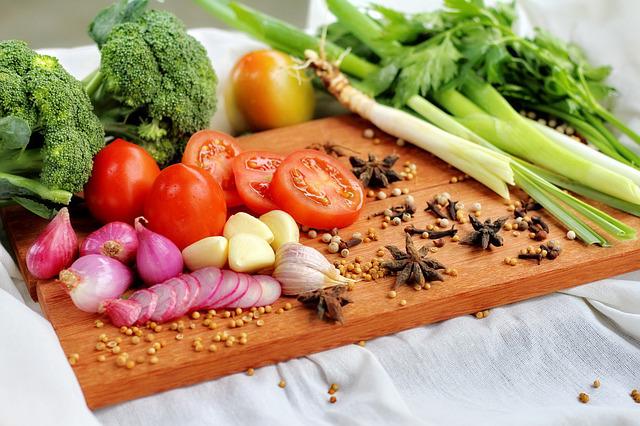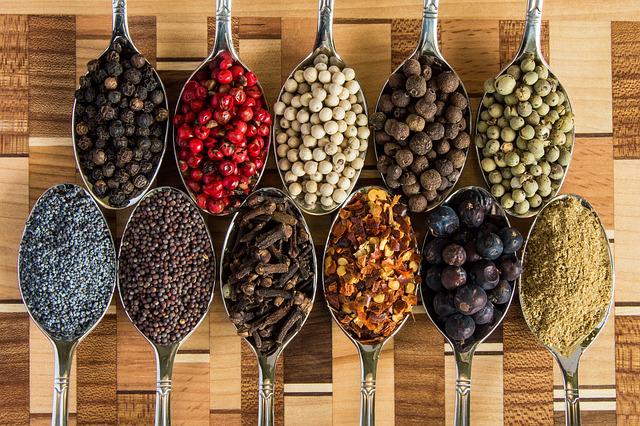If you’re looking for healthy recipes for plant-based diet that will help you lose weight and keep it off, and help you achieve your optimal health and longevity, then this article is for you.
We’ll cover the basics of what to eat and what not to eat, replacements for your favourite foods and unhealthy ingredients, and also give you access to a fantastic free course to 100+ recipes for plant based diet.
What is a plant-based diet and why should you try it?
A Plant-based Diet is an approach to eating based on whole, unprocessed plant foods, while minimising or eliminating animal products and processed foods.
Research has shown that a whole foods, plant-based diet may be the best way to reduce your risk of leading causes of death and risk factors for death today, such as reducing risk of heart disease, diabetes, high blood pressure and obesity.
Plant-based protein seems to be safer than animal protein when it comes to cancer risk.
As Dr. Michael Greger, founder of the evidence-based website NutritionFacts.org puts it, a Whole Food Plant Based Diet "should be the default diet until proven otherwise".
What Are Plant-Based Foods?
Plant-based foods are any foods that are sourced from plants. This excludes animal products such as:
- Red meat
- White meat
- Eggs
- Fish
- Seafood
- Milk
- Curds
- Buttermilk
- Ghee
- Butter
- Cheese
- Cream
- Paneer
- Honey
However, technically, plant-based foods may include several processed foods such as oil and sugar.
That's why Dr. T. Colin Campbell, who coined the term 'Plant-based Diet' soon added another dimension to it, renaming it the 'Whole Food Plant Based Diet'.
What Is a Whole-Foods, Plant-Based Diet?
A whole-foods plant-based diet is one that includes foods from all the healthy food groups including whole, unprocessed plant-based foods.
Apart from excluding animal foods, it also excludes processed foods, such as:
- Oil
- Sugar
- Jaggery
- White Rice
- Sago or Tapioca
- Refined Starches
- Extracted Protein Powders
- Maida or Refined Wheat
- Alcohol
A Whole Foods, Plant Based Diet is based on eating nutrient-dense, minimally processed, and unrefined foods.
The goal of this type of diet is to achieve optimal health and longevity.
This is especially urgent in the face of the global diabetes & obesity pandemic.
A Whole-Foods, Plant-based Diet includes foods such as:
- Fruits
- Vegetables & Greens
- Pulses & Legumes
- Whole Grains
- Nuts & Seeds
- Herbs & Spices
- Mushrooms
So when you do you next meal prep, think about the ingredients going into each dish. That's where you can create the maximum impact on your long term health.
What Beginners Should Know About Plant-Based Eating
In the past, you may have been eating a lot of meat and dairy, fried food or sugar.
It is not easy to change your lifelong habits overnight and eat healthy all the time.
There are many small steps you can take towards this direction, which can help make the transition easier for you.
One of the first steps we recommend is to add plenty of healthy foods into your diet. As part of this, trying out new plant based recipes is a great first step.
In case you don't like one recipe or another recipe doesn't work out, don't get disheartened.
Just keep trying a few more and you will find that some recipes click easily for you.
As you experiment more and more recipes, it will become easier for you to make the transition to a whole food plant based diet.
Happy Cooking!
What Does Following a Plant-Based Diet Mean, Exactly?
The term “plant-based diet” is often used interchangeably with the terms vegan and vegetarian. However, there are important differences between these diets that you should know about
Vegetarian diets include avoiding meat, seafood and eggs.
Being vegan means avoiding contributing to animal abuse in any form. Vegan diet is one part of this.
When it comes to food, this means apart from being vegetarian, also avoiding dairy products and honey.
It also includes other lifestyle changes for avoiding animal exploitation.
Following a whole food plant based diet means basing your diet on whole, unprocessed plant-based foods for the purpose of achieving your optimal health and longevity.
Once you adopt a lifestyle change, it is no longer about that cheat meal on weeknight dinners or crumbling to temptation on a weeknight meal. It becomes about consciously choosing healthier ingredients for your favourite dishes, whether it is a rice bowl or a feast from Mediterranean diets.
What Does the Current Research Say About Plant-Based Diets?
The current research on plant-based diets is quite extensive. The following are just a few of the many studies that have been done over the years:
- The 2020 EAT-LANCET Commission concluded that "staying within the safe operating space for
food systems requires a combination of substantial shifts toward mostly plant-based dietary
patterns" - In 2016, the Journal of the Academy of Nutrition and Dietetics published a paper titled 'Position of the American Academy of Nutrition and Dietetics: Vegetarian Diets' in which they said:
- It is the position of the Academy of Nutrition and Dietetics that appropriately planned vegetarian, including vegan, diets are healthful, nutritionally adequate, and may provide health benefits for the prevention and treatment of certain diseases.
- These diets are appropriate for all stages of the life cycle, including pregnancy, lactation, infancy, childhood, adolescence, older adulthood, and for athletes.
What to Limit (or Avoid Entirely)
Limit or avoid animal foods, including:
- Meat
- Seafood
- Eggs
- Dairy Products
Also, limit or avoid processed foods, including:
- Oil
- Sugar, Jaggery (and Honey, too)
- White Rice, Maida, Refined Flour, Sago or Tapioca
- Alcohol
What Are the Scientifically Proven Benefits of a Plant-Based Diet?
Here are the scientifically proven benefits of a plant-based diet:
- Plant-based diets can help reduce risk of several chronic diseases, including:
- Ischemic heart disease
- Type 2 diabetes
- Hypertension
- Certain types of Cancer
- Obesity
- Low intake of saturated fat and high intakes of whole plant foods (all rich in fiber and phytochemicals) can help achieve:
- Lower total cholesterol levels
- Lower low-density lipoprotein cholesterol (LDL-C) levels
- Better serum glucose control
What Are the Potential Disadvantages of Adopting a Plant-Based Diet?
The potential disadvantages of adopting a plant-based diet may include getting too healthy too fast!
Kaiser Permanente, one of the largest insurance organisations in the world, published a research paper called 'Nutritional Update for Physicians: Plant-based Diets', where they outlined the various health benefits of a plant-based diet.
About the risks, this is what they had to say:
- Depending on the underlying conditions, patients with chronic disease who take multiple medications need close monitoring of low blood sugar levels, low blood pressure, or rapid weight loss.
- If these occur, the physician may need to adjust medications. In some cases... the need for certain medications can be eliminated altogether.
200 Recipes for Plant-based Diet You Can Try at Home Today
The FREE Plant-based Kickstart online course has more than two hundred delicious whole food plant based recipes that you can try at home today. You can sign up here or simply click any of the vegan recipe names to join the free course and get access to all 200+ recipes.
Alternatively, download this ebook with 100+ WFPB recipes that you can refer anytime and even print out to gift your parents.
These recipes include gravies with a creamy sauce and hot sauce, bold flavors from various cuisine across India and abroad, foods with both a sweet flavor and savory flavor.
Whether it's a vegan bowl topped with sunflower seeds, learning how to use nut butters like homemade creamy peanut butter in Indian dishes or simply learning a new approach to meal prep for vegan meals, we have got you covered.
Here are the recipes for plant-based diet included in the Plant-based Kickstart:
Healthy Alternative Recipes
- Date Syrup Recipe
- Peanut Butter Recipe
- Almond Butter Recipe
- Potato Cheese Recipe
- Cashew Parmesan Cheese Recipe (the cheesy flavor comes from Nutritional Yeast)
- Tila Udhak Recipe | Ellu Neeru Recipe | Sesame Mylk Recipe
- Moonga Udhak Recipe | Green Gram Mylk Recipe
- Coconut Thambuli Recipe | Dairy Free Buttermilk Thambli
- Raw Vegan Raita Recipe
- Tender Coconut Instant Curds Recipe
- Dairy-free Vegan Capsicum Raisin Raita Recipe
- Vellarikkai Pacchadi Recipe | Cucumber Raitha Recipe
Smoothie Recipes
- Tomato Mint Juice Recipe | Smoothie Recipe
- Papaya Orange Smoothie Recipe
- Banana Chia Seed Smoothie Recipe
- Green Smoothie Recipe
Salad, Dressing & Pickle Recipes
- Watermelon Relish
- Apple Pomegranate Salad | Fruit Salad Recipe
- Guava Banana Salad Recipe
- Muskmelon Dry Fruit Salad Recipe
- Creamy Mango Bowl Recipe
- Banana & Pear Salad
- Bale Hannina Rasayana Recipe
- Going Nuts Salad Recipe
- Raw Stuffed Bhindi Recipe | Stuffed Okra Recipe
- Radish Lettuce Salad with Garlic Vinaigrette Recipe
- Spicy Cabbage Peanut Salad Recipe | Thai Salad Recipe
- Mediterranean Salad Recipe
- Thai Papaya Salad | Easy Som Tam Salad Recipes
- Moong Sprouts Kosambari Recipe | Traditional Indian Salad
- Southekaayi Amla Kosambari Recipe | Vegan Cucumber Lentil Gooseberry Salad
- Fresh Amla Pickle Recipe
- Radish Pickle Recipe
- Cabbage Pickle Recipe
Chaat Recipes
- Methi Sprout Chaat Recipe
- Moong Sprouts & Aloo Chaat Recipe
- Ompudi Recipe | Sev Recipe for Sev Puri Chaat Recipe
South Indian Gravy Curry Recipes
- Vale Bajji Ambat Recipe | Malabar Spinach Curry Recipe from Western Ghats
- Manathakkali Keerai Masiyal Recipe
- Kadala Curry Recipe
- Kerala Vegetable Stew Recipe
- Ridge Gourd Curry Recipe
- Chakotha Masiyal | Keerai Masiyal Recipe
- Pineapple Relish Recipe
- Olan Recipe with Ashgourd & Cowpeas
- Amte Kai Huli Recipe | Konkani Recipe
- Avial Recipe
- Pasala Keerai Molagootal Recipe | Malabar Spinach Pepper Stew Recipe
- Veg Kurma Recipe
- Jicken Curry | Raw Jackfruit Mock Chicken Curry
- Oil-free Brinjal Curry | Badanekai Saaru
North Indian Stir Fries & Dry Veg Recipes
- Pan Tossed Carrot & Gobi Recipe
- Masala Bhindi Recipe Without Oil | Spiced Okra Recipe
- Baingan Aloo Recipe | One Pot Brinjal Potato Curry
- Radish Mustard Stir Fry | Radish Recipe with Mustard Seed | Stir Fry Recipes
South Indian Stir Fry & Dry Veg Recipes
- Green Beans Paruppu Usili Recipe
- Vazhakkai Podimas Recipe | Raw Banana Recipe
- Cabbage Curry Recipe
- Keerai Poriyal Recipe
- Palak Keerai Masiyal Recipe
- Pumpkin Curry Recipe
- Mathanga Erissery Recipe | Pumpkin Curry
- Colocasia Sepankizhangu Podi Pota Poriyal
- Hesaru Kaalu Recipe
- Tendli Sukka Recipe | Oil-free Ivy Gourd Curry
- Yummy Yam Sabzi Recipe
- Chow Chow Recipe | Squash Chayote Poriyal Recipe
Kootu Recipes
- Paruppu Keerai Kootu Recipe | Purselane Lentil Stew
- Kathirikai Kootu Recipe | Brinjal Lentil Curry Recipe
- Ceylon Kootu with Ceylon Cinnamon Recipe
- Karnataka Knol Kohl Kootu | Oil-free Kohlrabi Lentil Curry from Karnataka
- Thandu Keerai Kootu Recipe | Amaranthus Lentil Stew
Sambar & Saaru Recipes
- Majjige Huli Recipe | Mor Kuzhambu Recipe | Buttermylk Curry
- Harive Soppu Saaru Recipe | Dantina Soppu Saaru Recipe
- Vendakkai Sambar Recipe without Tamarind | Okra or Bhindi Sambar Lentil Stew Recipe
- Chettinad Paruppu Urundai Kuzhambu Recipe
- Kokum Knol Kohl Sambar Recipe | Kohlrabi Recipes
- Massoppu Saaru Recipe
Dal & North Indian Gravy Recipes
- Moong Dal Recipe
- Rajma Masala Recipe
- Vegan Chana Masala Recipe | Chickpea Curry Recipe
- Oil-free Gobi Matar Tofu Gravy Recipe
- Pitla Recipe | Jhunka Gravy | Gram Flour Curry
- Vegan Tofu Amaranthus Gravy Recipe
- 'Paneer' Butter Masala Recipe
- Broccoli Palak Masala Recipe
- Vegan Dal Makhani Recipe
- Sarson ka Saag Recipe
- Navratan Korma Recipe
Rasam Recipes
- Garlic Rasam Recipe | Garlic Benefits with Minced Garlic | Poondu Rasam
- Obbattu Saaru Recipe
- Milagu Kuzhambu Recipe | Oil-free Pepper Broth
Chutney & Dip Recipes
- Manga Thuvaiyal Recipe | Raw Mango Chutney Recipe
- Green Chutney Recipe | Coriander Pudina Chutney Recipe
- Peanut Chutney Recipe | Shenga Chutney Recipe
- Onion Tomato Chutney
- Karuvepilai Thuvaiyal Recipe | Curry Leaves Chutney Recipe
- Ridge Gourd Chutney
- Amte Kai Coconut Chutney Recipe | Konkani Recipes
- Inji Thuvaiyal | Ginger Chutney
- Amte Kai Chutney Recipe | Ambade Ambarella or Hog Plum Dip
- Coconut Chutney Recipe
- Peanut Flaxseed Chutney Recipe | With Homemade Peanut Butter
Dosa Recipes
Adai Recipe | Adai Dosa Recipe | Adai Dosai
Roti Recipes
- Jowar Roti Recipe | Roti Bakar | Sorghum Millet Flatbread
- Ragi Roti Recipe
- Methi Paratha Recipe
- Makki ki Roti Recipe | Punjabi Maize Flatbread
- Aloo Paratha Recipe
- Mooli Paratha Recipe | Oil-free Radish & Whole Wheat Flatbread
- Bajra Roti Recipe | Roti Bakar | Oil-free Pearl Millet Flatbread
- Whole Wheat Roti Recipe
Tiffin Recipes
- Kumbalkai Kottige Kadubu Recipe
- Foxtail Millet Rava Upma Recipe
- Nuchinunde Recipe
- Jowar Rava Upma Recipe
- Red Rice Puttu Recipe
- Dill Kadubu Recipe
- Akki Roti Recipe
- Jolada Kadubu
- Onion Uthappam Recipe | Indian Dosa Recipe
- Ragi Mudde Recipe
- Pidi Kozhukattai Recipe | Steamed Broken Grain Dumplings
- Easy Poha Recipe | Unpolished Rice Avalakki Flattened Rice
Rice Recipes
- Red Rice Recipe
- Brown Rice Recipe
- Kodo Millet Rice Recipe
- Foxtail Millet Rice
- Proso Millet Rice
- Jeera Rice Recipe with Basmati Brown Rice
- Burnt Garlic Fried Rice | Thai Fried Rice Recipe with Roasted Garlic
- Foxtail Millet Veg Pulao Recipe
- Mexican Rice Recipe
- Coconut Rice Recipe
- Bisi Bele Bath Recipe | With Bisi Bele Bath Powder Recipe
- Dal Khichdi Recipe
- Pulihora Recipe | Kokum Rice Recipe
- Veg Peas Pulao with Brown Basmati Rice
- Pongal Recipe | Foxtail Millet Ven Pongal Recipe
- Dairy-free Foxtail Millet Curd Rice Recipe | Samai Mosaranna
- Oil-free Mushroom Biryani Recipe
- Lemon Rice Recipe
Continental & Asian Recipes
- Whole Wheat Sandwich
- Pasta Integrale Recipe | Handmade Whole Wheat Tagliatelle Pasta Recipe
- Baked Sweet Potato Wedges Recipe
- Bok Choy Stir Fry Recipe
- Thai Yellow Curry Recipe
- Hummus Recipe
- Guacamole Recipe
Raita & Pacchadi Recipes
Indian Dessert Recipes
- Paithama Laddoo Recipe | Lentil Laddoo | Diwali Special Recipe
- Jowar Gujiya Recipe | Dumpling Recipe | Dumplings Recipe
- Sukku Vellam Recipe | Sugar Free & Jaggery Free Ginger Laddoo Recipe
- Jowar Puran Poli Recipe | Oil-free Obbattu Recipe
- Methi Payasam Recipe | Methi Recipe During Pregnancy
- Sukrunde Recipe | Udupi Recipes | Green Gram Stuffed Dumpling Recipe
- Dry Fruit Laddoo Recipe
- Chocolate Black Rice Payasam
- Ukkarai Recipe Without Ghee | Okkarai Recipe | Diwali Recipe
- Badam Barfi Recipe
- Sakkarai Pongal Recipe | Sugar Free Pongal Recipe Sweet
- Moong Dal Kheer with Raisins & Elaichi
Exotic Dessert Recipes
- Raw Coconut Blueberry Cheesecake Recipe
- Sweet Potato Chocolate Ice Cream Recipe
- Kuih Binka Ubi Recipe | How to Make Cassava ka Halwa
- Raw Vegan Mango Parfait Recipe
Snack Recipes
- Soya Flaxseed Vada Recipe
- Zero Oil Fried Tofu Recipe
- Chana Sundal Recipe
- Barnyard Millet Ribbon Pakoda Recipe
- Scrambled Eggs (with Tofu) Recipe
- Dill Cabbage Vada Recipe
- Jhunka Vada Recipe | Oil-free Zunka Bhakar
- Cheezy Popcorn Recipe
- Jowar Sweet Diamond Biscuits Recipe | Diwali Recipes
- Mixed Greens & Sweet Potato Kebab Recipe
- Baked Mirchi Bajji Recipe
- Gobi Manchurian Recipe
- Baked Oil Free Veg Falafel Recipe
- Baked Zero Oil Mixture Recipe | Diwali Recipe
- Baked Onion Pakoda Recipe
Tea, Herbal & Spice Drink Recipes
- Masala Matcha Green Tea Recipe | Matcha Tea Recipe
- Hibiscus Tea Recipe | Afternoon Tea Without Sugar
- Mint Ginger Kashayam Recipe
- Turmeric Latte Recipe
- Lemon Ginger Kashayam Recipe
- Ginger Lemongrass Tea Recipe
- Spearmint Tea Recipe
- Kokum Juice Recipe
- Athimadhuram Kashayam Recipe
- Rose Tea Recipe
- Tulsi Ginger Tea Recipe
- Maghrebi Mint Tea | Moroccan Peppermint Tea Recipe
- Muskmelon Panakam Recipe
- Chukku Kaapi Recipe
- Nimbu Paani Recipe | Lemon Date Cooler
- Kashmiri Kahwa Recipe
Vegan Soup Recipes
- Split Pea Soup Recipe
- Thai Soup Recipe
- Cauliflower Bisque Recipe
- Cream of Pumpkin Soup
- Thai Chickpea Soup Recipe
- Cream of Mushroom Soup Recipe
- Cream of Spinach Soup Recipe
- Hot and Sour Soup Recipe
- Carrot Tomato Soup Recipe
- Clear Zoodles Soup Recipe
- Tomato Basil Soup Recipe
- Sweet Corn Soup Recipe
- Snake Gourd Soup Recipe with Turmeric & Ginger
- Beetroot Soup Recipe
- Cruciferous Soup Recipe
- Amaranthus Double Beans Soup Recipe
Cake Recipes
Feeling like it's too tough? Have you tried our plant-based goodies from Sampoorna Ahara yet? That may make it easier for you to enjoy plant-based recipes without making them yourself.
I hope you found this blog useful! I can't wait to hear about your adventures trying new recipes for plant-based diet. If you have any questions, you can comment below this blog.
Be blessed,
Dr. Achyuthan Eswar
Plant-based Lifestyle Physician
Co-founder,
NutritionScience.in Online Learning Platform &
SampoornaAhara.com Whole Food Plant Based Social Enterprise






